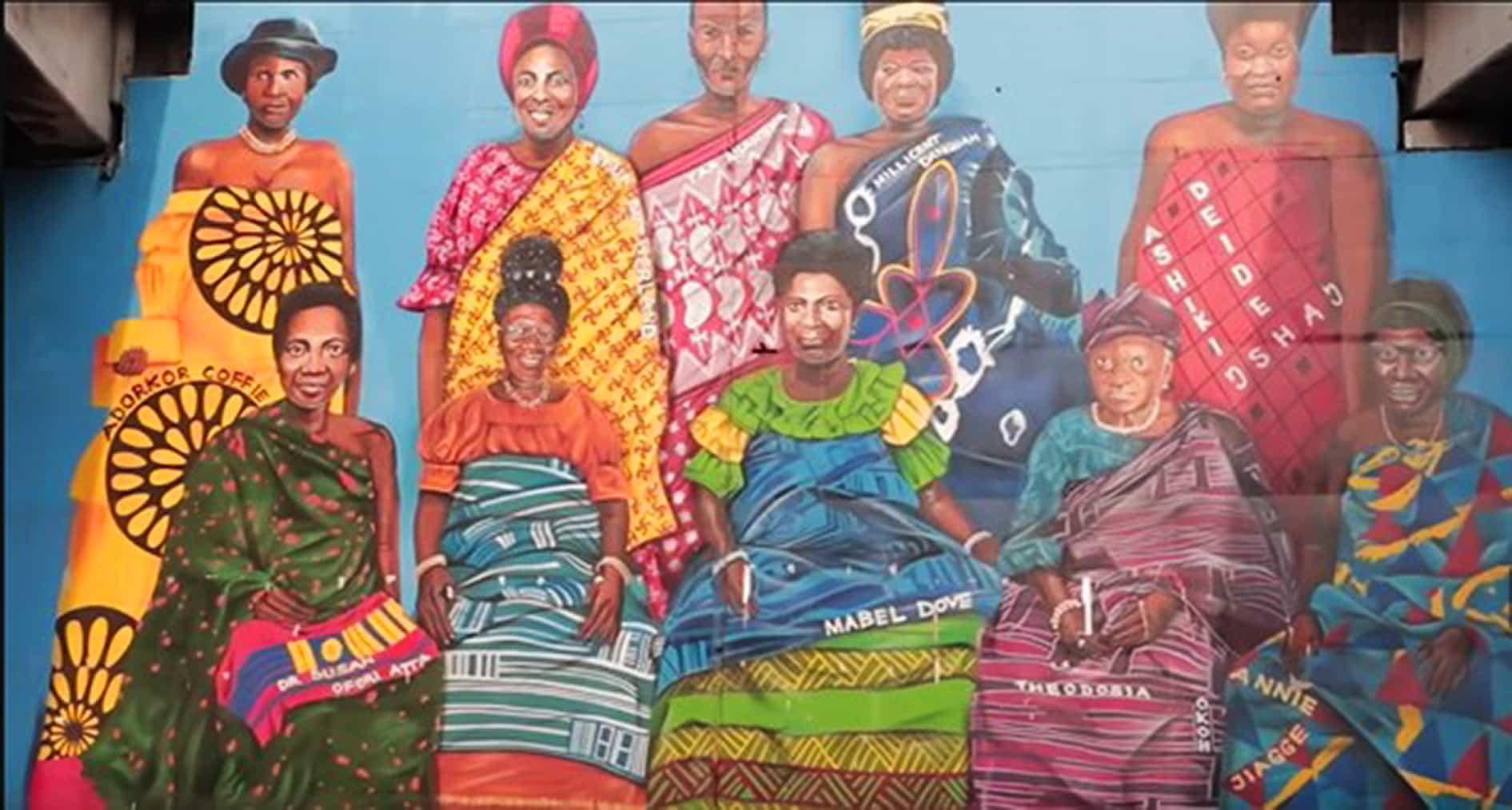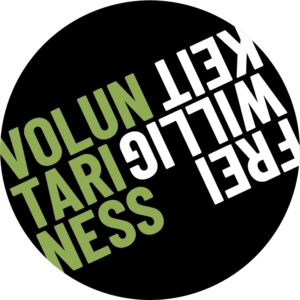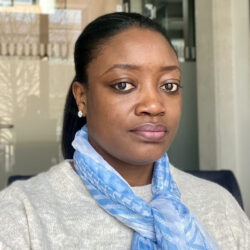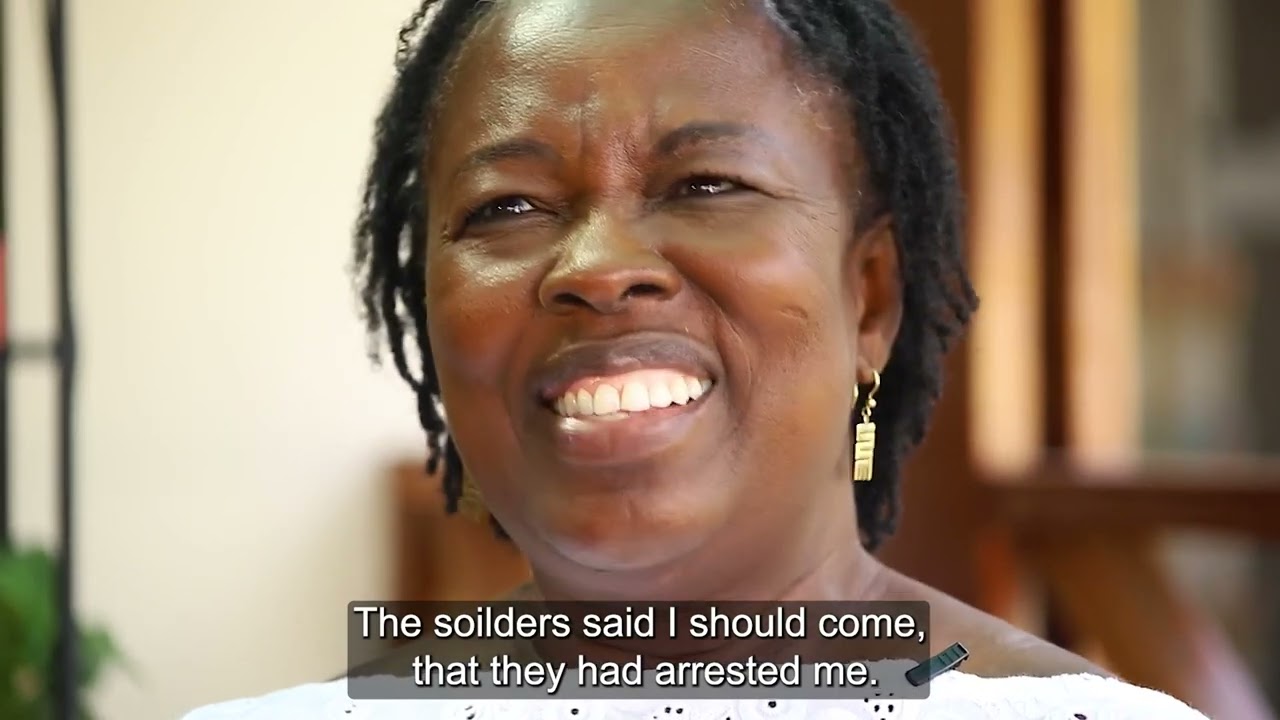
Created by Josephine Ngminvielu Kuuire
Of Voluntariness, Solidarity and Resilience: Framing the Documentary Film “When Women Speak”
The documentary film from 2022, “When Women Speak”, captures a turbulent period in Ghana’s history. Through the eyes of 16 Ghanaian women activists from different walks of life, the film portrays how women navigated their individual and collective activism through changing political regimes till date in the struggle to uphold the rights of women. The film, an output of an academic research project, “An Archive of Activism: Gender and Public History in Postcolonial Ghana” by Professor Akosua Adomako Ampofo and Professor Kate Skinner of the Universities of Ghana and Bristol respectively, attempts to fill a rather under-researched gap in the history of women’s activism in Ghana.
Employing an elaborate blend of live interviews with historic footage, excerpts from newspapers, animations and a rich soundtrack, the documentary tells the story of women’s activism and mobilization during the so-called “lost decades” in the history of Ghana. It brings to light the rigorous efforts exerted by women to ensure that their voices were not lost, even in the face of opposition and threats that plagued them during the military regimes and afterwards.
Given that the political history of Ghana, like several other post-colonial states, is interspersed with violent regimes, it makes an interesting case for exploring how voluntariness was shaped through the changing times. Moreover, by highlighting the activism of women in these especially challenging times of Ghanaian history, the film reveals in a compelling manner how the issue of gender plays out in such contexts.
Ghana Post-Independence: Nation (Re-)Building and the “Lost Decades”
After the overthrow of Kwame Nkrumah, the first president of Ghana, in 1966, the country witnessed a series of military regimes, some of which were violent. Until the eventual return to multi-party democracy in 1992, wich have been sustained to the present day, the country experienced only two short-lived democratic governments, which were ousted in both cases by military coup d’etats. As women and the women’s movement in Ghana at the time were still actively involved in negotiating their citizenship and rightful place in the post-colonial state, these turbulent periods did not only threaten and gnaw at the progress made so far, but they also challenged women’s resilience and resistance in the face of dire and highly uncertain circumstances. Until recently, this period had been largely under-researched in Ghanaian gender history, leading to a generalized notion of minimal, if not nonexistent, activism on the part of women during these decades. Given the precarious and highly volatile nature of the military regimes, coupled with violent attacks such as the “kalabule” attacks on market women during the Provisional National Defence Council (PNDC) regime in 1979, it was only logical to assume such a gap in women’s activism then due to the palpable fear and insecurity that characterized the regime.
According to the interviewees in the film, women’s activism in post-independence Ghana emerged first as welfare activism where women advocated for their own social and economic advancement and thus organized themselves accordingly. Over time, this evolved into political activism with the merging of all women’s groups into the National Council of Ghana Women (NCGW) in 1960. Political activism entailed advocating for political and legal reforms to solidify the status of women as rightful citizens in the post-colonial state. The overthrow of the Nkrumah-led Convention People’s Party ( CPP) in 1966 saw a return of women’s activism to predominantly welfare activism. The interviewees relate several examples of how they organized themselves and mobilized other women through voluntary activism.
The International Women’s Year, Welfare and Political Activism
In 1975, which the UN designated as International Women’s Year, Ghana’s National Council on Women and Development (NCWD) emerged in response to a UN call for member states to establish a national machinery for women. Among its efforts to promote gender equality and women’s empowerment, the NCWD ensured the institutionalization of professional women’s groups, most of whom were previously self-organized. In the different professional spheres, women organized themselves in associations. These associations did not aim only at empowering its members, they also pooled ideas, resources and expertise to mobilize women in less professional settings, with the goal of championing the rights of these women and empowering them.
An example from the film, as narrated by Professor Florence Dolphyne, the first vice-chairperson of NCWD, was the initiative of the association of women bankers to introduce market women to the wearing of aprons to ensure that the Ghanaian currency, the Cedi notes, were handled and stored properly, a practice that has endured to date. She also highlights the efforts of the Ghana Association of University Women (GAUW) to mentor and support girls in high schools in making suitable choices for their subsequent educational and career paths. Other interviewees also recounted how these women ‘scholar-activists’ constantly sought out ways to bridge the gap between the academic and non-academic spheres of the society. For example, the activists organized information forums and initiated programs of study for the general public on the rights of women. Mention is also made of the first Ghanaian women’s magazine, launched by the founder of the women journalists’ association, Mrs. Kate Abbam, to inform and educate the reading public on issues affecting women at the time.
Justice Annie Jiagge, the first chairperson of the NCWD, also contributed to the financial liberation of women engaged in different forms of trade by spearheading the establishment of trade cooperatives and food processing factories. This later resulted in the establishment of Women’s World Banking, a financial institution for women, in 1975 through the efforts of Mrs. Esther Ocloo, the first women to process food items commercially, and founder of the Ghana Manufacturers Association. All these endeavors targeted the empowerment of women across the different spheres of the post-colonial society.
Some women in the film also recount the various legal and political reforms they fought for to advance the rights of women. These initiatives were borne in part out of personal or shared experiences, such as it was in the case of Mrs. Kate Abbam, her lived experiences as a widow, and her subsequent advocacy for reforms in widowhood rites. Other reforms were borne out of solidarity with the victims of gender inequality and discrimination, coupled with the unwavering belief in the power of collective activism in effecting the expected change.
The film mentions other legal and structural reforms as the intestate succession law of 1985, which ensured that the wives and children of men who died intestate were not denied their inheritance. Other examples included the reforms in the discriminatory weight restrictions in the Ghana Airways flights, the repeal of a law barring married women from obtaining passports without the consent of their husbands, and the passage of law against domestic violence. The active advocacy of women in political, social and legal spheres were instrumental in achieving all these reforms.
The legal advocates who were organized as the Federation of Women Lawyers (FIDA) also took legal aid to the doorsteps of the everyday Ghanaian women. They offered education on the new legal reforms and pro bono legal services to affected women. With their voluntary engagements they ensured the successful publicity and implementation of the reforms. Other feats that resulted from women’s political activism included the eventual establishment of a Ministry of Women’s and Children’s Affairs in 2001, and the launch of a Women’s Manifesto by Women’s Manifesto Coalition in 2004 to “speak truth to power.” These remarkable strides notwithstanding, the women in the film bemoaned the protracted battle for the passage of the Affirmative Action Bill (now law, as of July 30, 2024) which at the time had been in the works for decades since its introduction to parliament.
Voluntary Agency and Women’s Activism
Looking at “When Women Speak” through the lens of voluntariness, significant characteristics of women’s activism in Ghana can be noted. The events highlighted in the film underscore the impact of the different voluntary initiatives not only on the basis of their legal and social outcomes. They also lend credence to the necessity of voluntary agency in and of itself. The voluntary agency of the professional women, for instance, presented itself as an invaluable resource for development and empowerment. They organized themselves as collective entities and mobilized other women beyond their professional spheres, while also initiating various endeavors that appealed to the voluntary participation of the mobilized women themselves. Many women were thus incited to become active stakeholders in the promotion of their own welfare and that of the post-colonial state at large. Similarly, the voluntary activism of women in political and legal spheres functioned as a necessary resource for empowerment and reform. By agitating for reforms on issues that affected the everyday lives of women, the citizenship of women was legitimized in the post-colonial state.
Despite Ghana’s political turbulence in the first few decades after independence, the voluntary activism of women, just as it had been in the fight for independence, remained steadfast and continued to evolve to meet the challenges of each regime. This ensured progress for women, one reform at a time, on all fronts – political, legal, economic, social and cultural. By amplifying the voices of women who witnessed the events and fought for change, “When Women Speak” provides valuable insights into the discourse of women’s activism in a period when it was presumed to be non-existent, or insignificant at best. Moreover, by including voices of women from beyond Ghana’s capital city, Accra, the film highlights the activism that was simultaneously taking place in other areas of the country, including those that are construed as lagging behind in terms of development. In all instances, the voluntary agency of women activists at every point of their struggle and advocacy played an important role to ensure the advancement of women in the post-colonial state. Thus, the successes chalked in the promotion of women’s rights, as can be seen in Ghana today, are attributable, not only to the efforts of successive governments, but arguably even more so to the voluntary agency, solidarity and resilience of women activists.
Suggested Citation: Nyame Tabiri, Gifty : “Of Voluntariness, Solidarity and Resilience: Framing the Documentary Film ‘When Women Speak'”, Voluntariness: History – Society – Theory, August 2025, https://www.voluntariness.org/of-voluntariness-solidarity-and-resilience/.





